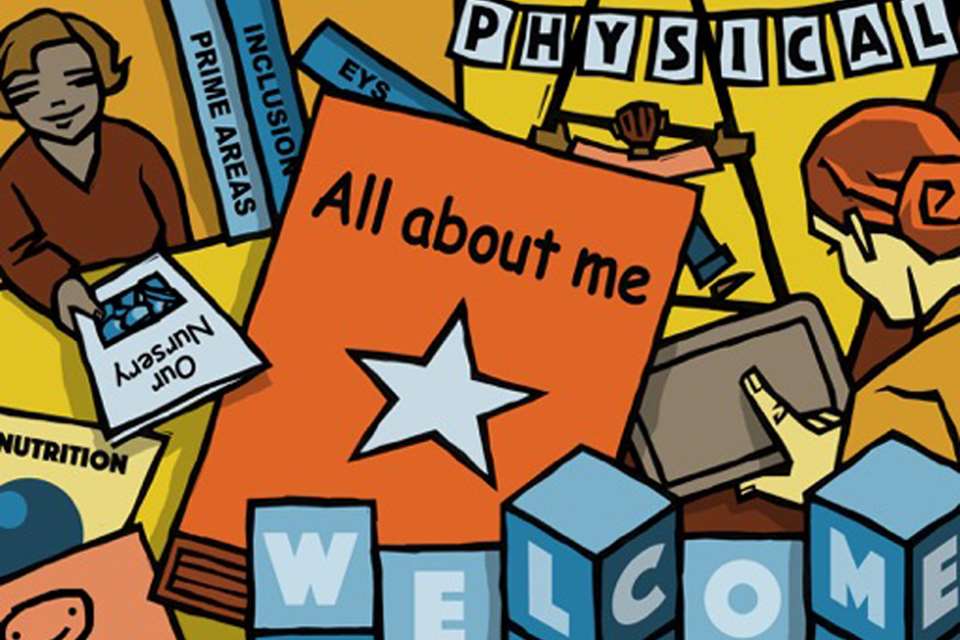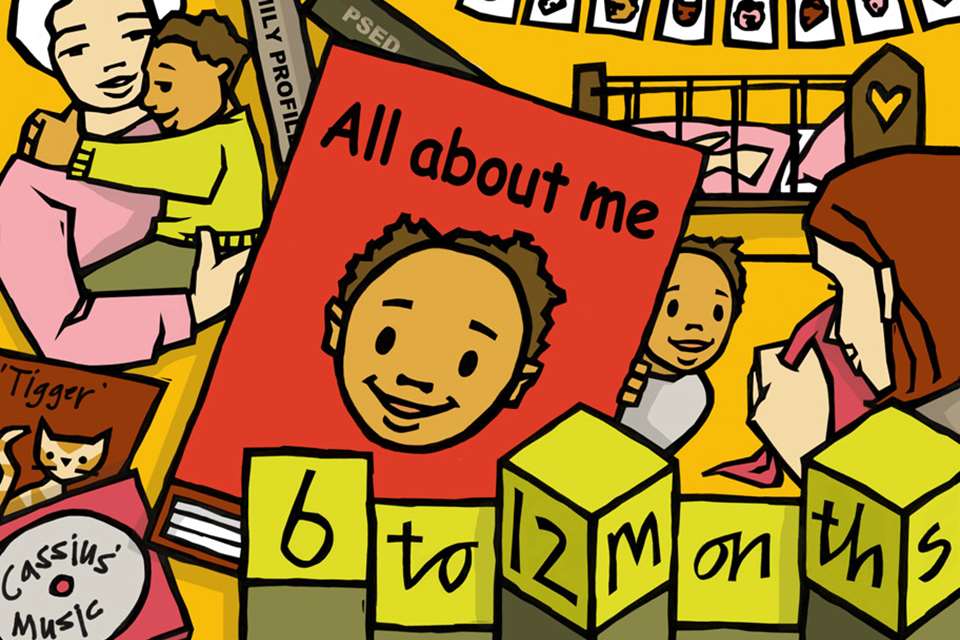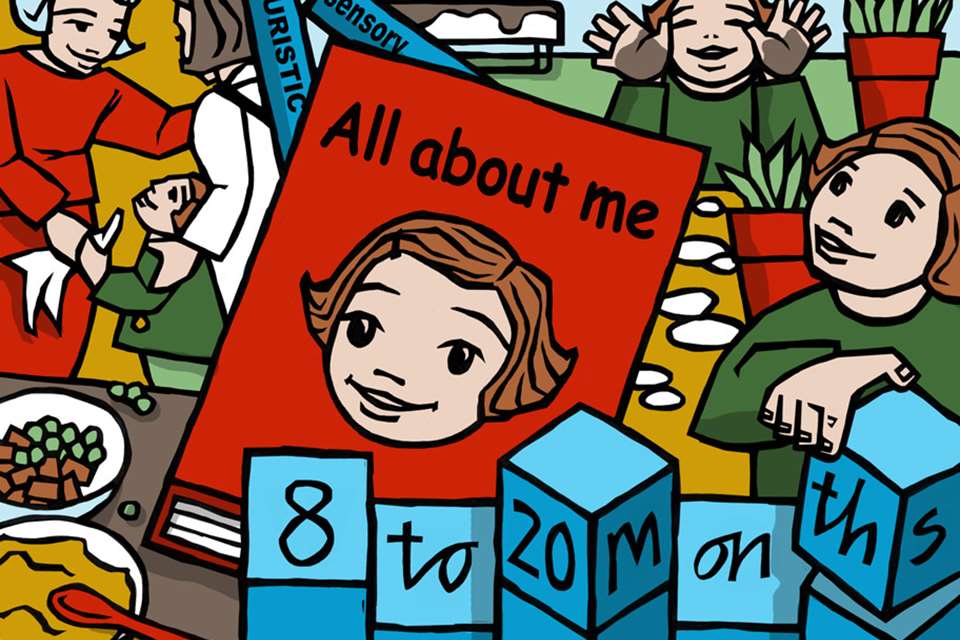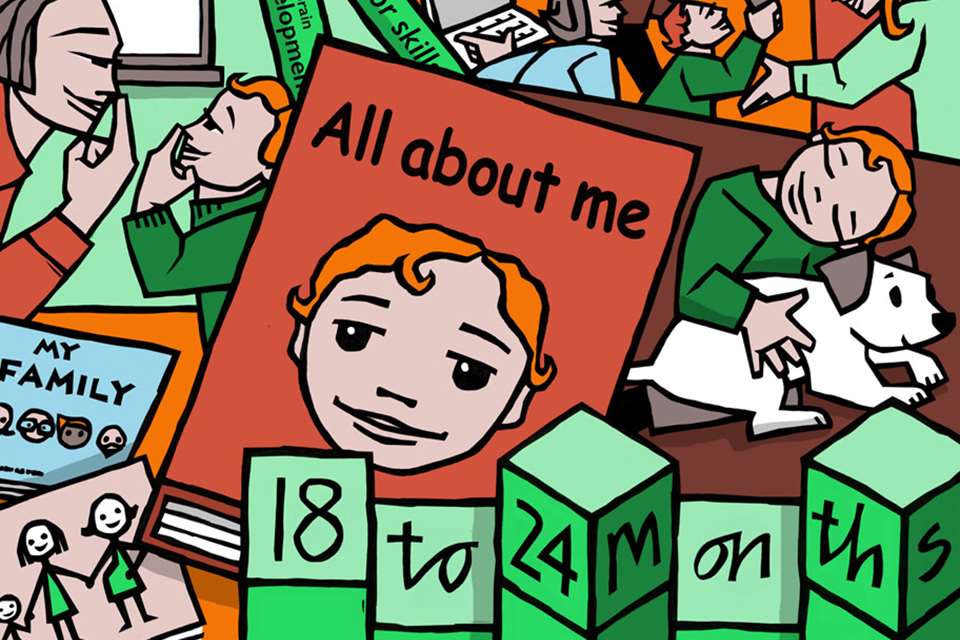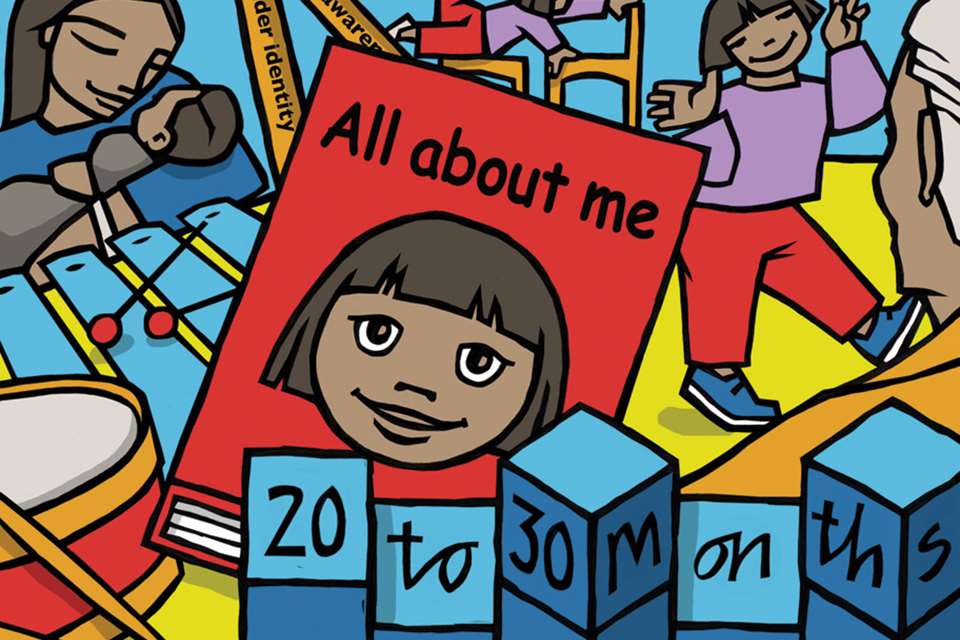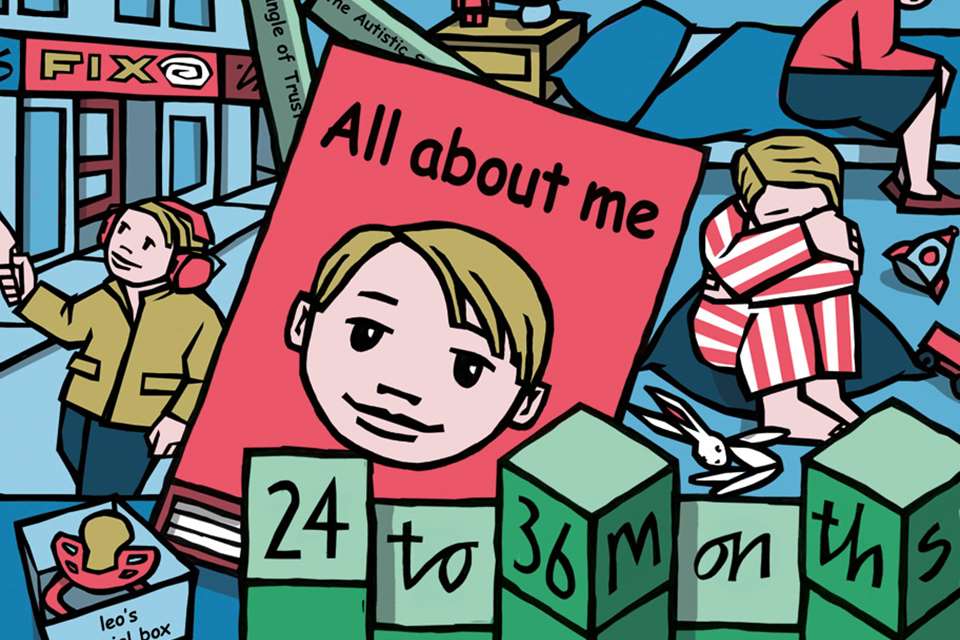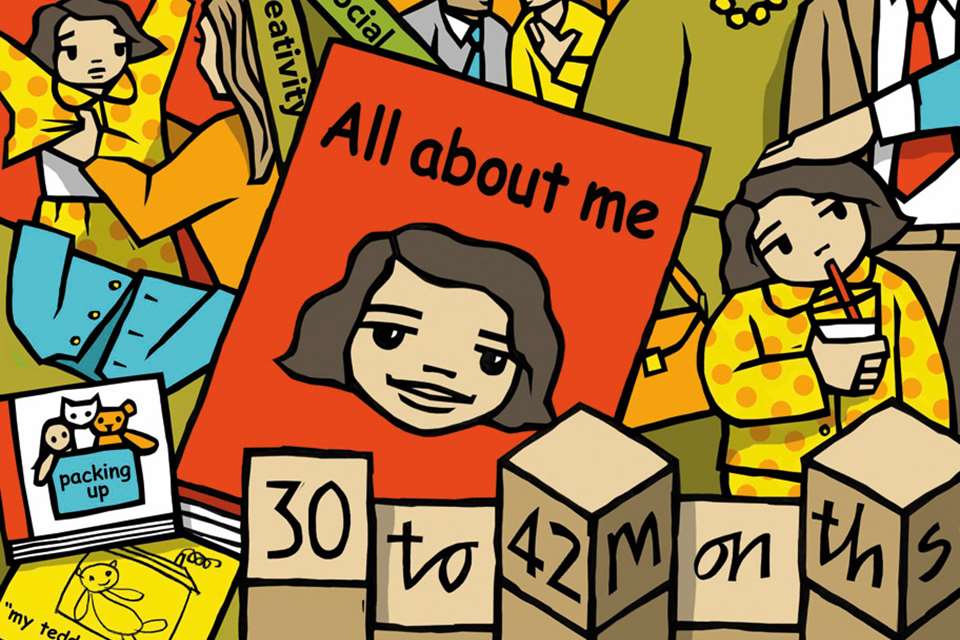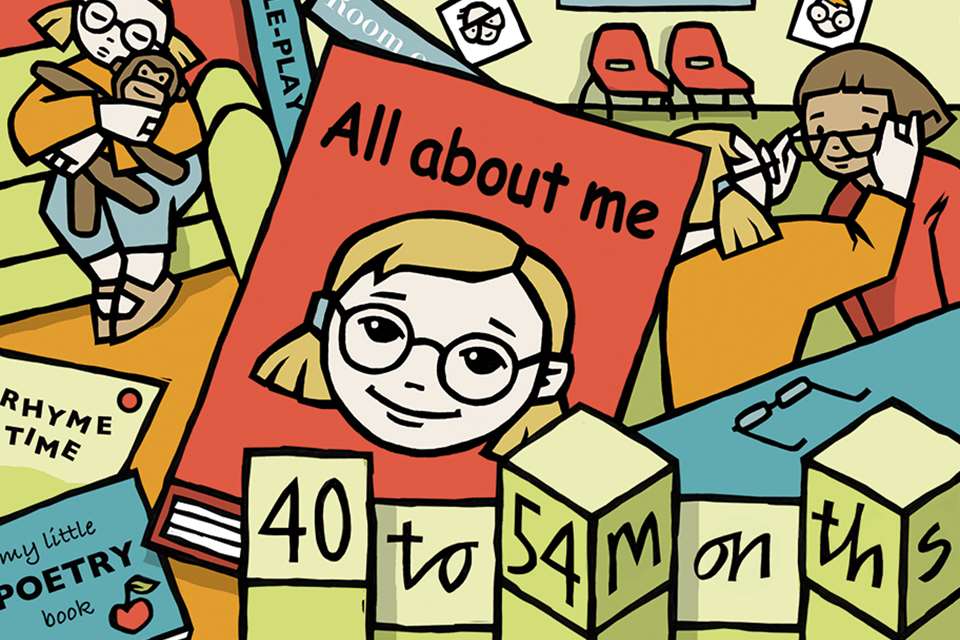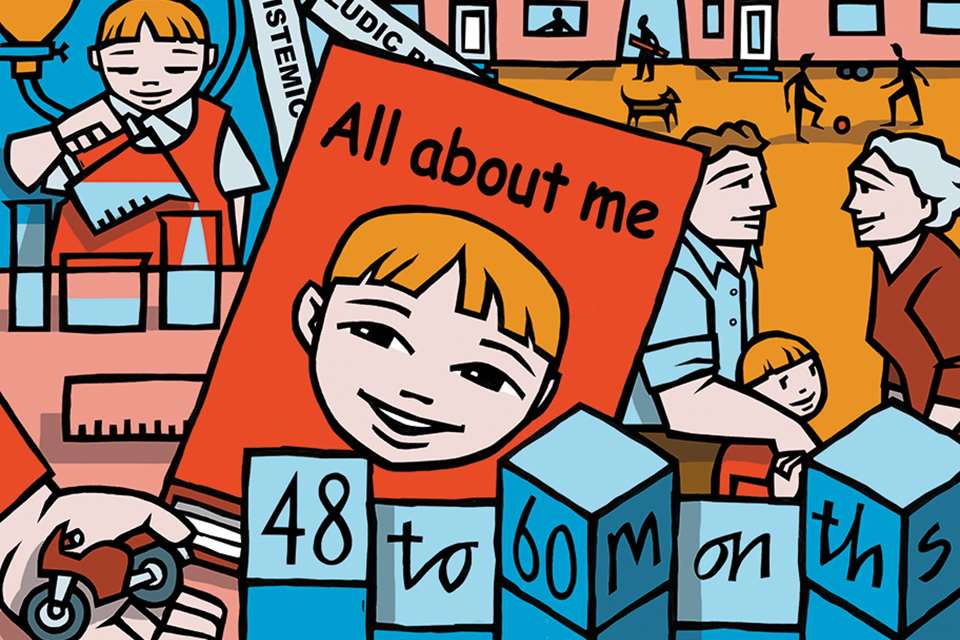STARTING POINTS: PART 12 - Learning about child development
Julia Manning-Morton
Monday, November 28, 2016
Meeting the emotional and learning needs of the unique child.
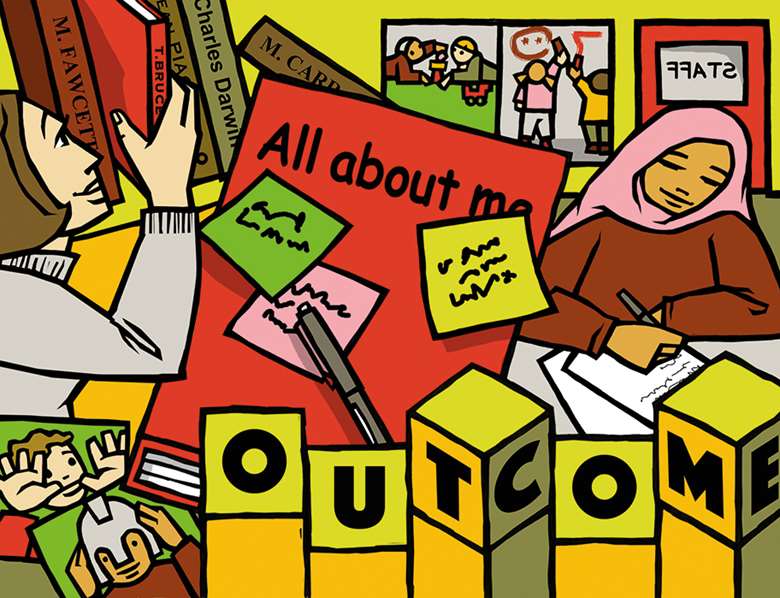
The articles in this ‘Starting Points’ series have been an introduction to the development of children from birth to five years old for practitioners who are new to the early childhood field. The first article in January 2016 introduced some overarching ideas about early human development. There then followed ten case study observations, each one of a child of a particular age and context, which were discussed in relation to different theories of development.
By writing the articles in the form of short child studies, I hoped to help you to notice and think about children’s development, to make sense of what you observe and to better understand your role in supporting a child’s development.
I also hoped that the series would give you an indication of some of the key elements of a ‘good’ child study as, for many of you embarking on your initial or further training, writing child studies will form an important part of your course.
Some of the most important elements in drawing up an effective child study are:
- detailed observation
- creating the study in partnership with parents and carers by sharing information regularly
- using child development theory to interpret and analyse your observations in order to better understand the child
- focusing on the things that the childcan do and using positive language to discuss any challenges that they are facing
- grounding your observations and interpretations firmly within the child’s socio-cultural context
- using your observations to reflect on and further develop your practice and provision
LEARNING ABOUT CHILDREN AND THEIR DEVELOPMENT THROUGH NOTICING AND OBSERVING
Being able to carry out and analyse observations using a range of methods is a core competence for early years practitioners. It is the way in which you will really get to know the children in your care, and is an essential skill that will underpin your successes on your courses and in your practice.
When we observe in a professional sense, we watch, listen and record in a purposeful way, usually with a particular focus. These observations are crucial to making accurate assessments of children’s progress and to your being able to talk in an informed and knowledgeable way with parents and other professionals. Therefore, your child observations must be:
Regular and frequent It is useful to have an agreed schedule so that team members know who is observing which child when and not all at the same time – and to make sure that some children are not overlooked.
Detailed and of good quality If your observations are too general or short, you will not be able to derive any useful information from them.
Holistic Children are not made up of areas of learning or development; they are whole people. Overall, your observations must cover all aspects of play, development and learning and your interpretations should show how they are interlinked. You need to ensure that you observe children in different areas and at different times of day.
Inclusive Individual children have their own developmental path and ways of accomplishing things, so your observation approach needs to recognise the variety of ways in which children can show us what they know and what they can do.
Sensitively interpreted and accurately analysed Collecting a lot of information about a child is only useful if you act on that information and use it to further your understanding of that child and to develop your provision.
An integral part of a continuous cycle in which you observe, assess, plan and evaluate a child’s development, learning, interests and well-being.
Observation methods and tools
Usually when we observe, we make written notes, but increasingly practitioners use computer devices/digital cameras to make video, photographic and audio recordings of children’s activities. There are many advantages to these tools and they can capture a child’s activity in a way that is engaging for children and parents, but practitioners must remember that they must still always be useful and relevant and be analysed in the same way as a written observation. Written observation methods include:
Anecdotal observations These are short ‘snapshots’ often written on Post-its, usually written to identify the progressive steps outlined inDevelopment Matters in the Early Years Foundation Stage. Notes like these can be useful in remembering something that you have noticed and want to write up more fully later or in capturing a significant new development for the first time. However, they cannot give the kind of holistic view of a child that can be gained from a narrative observation.
Narrative observations These are written accounts of a child observed over a period of time and which attempt to record exactly what is observed in the moment. They should be written so that the reader can visualise what happened, where it happened and who said what. The advantage of using this approach is that you only need pen and paper, although recording all the detail can be difficult and you might miss something while writing. Increasingly, settings are using the ‘Tavistock Infant Observation Technique’ and ‘Learning Stories’, which are effective approaches to narrative observation.
Sampling observations These might include: ‘Time Sampling’, ‘Event Sampling, ‘Flow or Movement Diagrams’ or ‘Sociograms’. They can help you to really focus on a particular activity or time and therefore gather very specific information.
Checklists Practitioners who are in their early stages of training, development and experience often find using a table of development such asDevelopment Mattersas a checklist a very straightforward method of recording children’s progress. However, although a checklist can be useful for practitioners to help keep key points of development in mind, it should only be used alongside other methods as this method gives no detail or supporting evidence and can result in focusing on what children cannot do rather than on their strengths and accomplishments.
The ethical issues in using all these tools must be considered. Children’s and parents’ rights to not be observed must be respected and permission to observe must be in place. Practitioners must show respect for a child’s dignity and privacy at all times.
As well as focused observation, it is also important for early years practitioners to always be noticing what children are doing and saying. This includes active and attentive listening, not only to what children say, but to all their actions, gestures and behaviours; facial expressions, posture and other forms of body language are the main way in which children communicate how they are feeling and what they are thinking.
An effective practitioner will be aware of these forms of non-verbal communication and listen not only with their ears but also with their eyes and their emotions. By ‘listening’ with your feelings, you can tune in to children’s feelings and empathise more with why they might be behaving in the way they are and sensitively anticipate how a child might feel in a certain situation.
LEARNING ABOUT CHILDREN AND THEIR DEVELOPMENT BY STUDYING CHILD DEVELOPMENT THEORY
Having an in-depth knowledgeof children’s development is an essential requirement for you as a professional practitioner in the early years sector. When you want to understand more about why or how an individual child’s development is progressing, or want to know more about child development in general, then you need to read about the research and theories that underpin ideas of how children develop.
In your initial training you will learn the major theories that have influenced approaches to early childhood practice and provision, many of which were developed from the observations that researchers and scientists, such as Jean Piaget and Charles Darwin, undertook on babies and young children.
As your professional knowledge and experience grow, you will encounter and learn about more and different theoretical ideas, perhaps from other disciplines, which will enrich and broaden your understanding. You will begin to see that there is no theoretical ‘truth’, just different perspectives on how children develop, some that agree with each other and others that disagree.
You will also understand that all ideas are formed in a particular historical and socio-cultural context that influences their perspective. This may mean that although these theories help you to interpret your observations, there may be times when what you observe seems to challenge the theory because times, cultures and perspectives change. Obviously your evidence will not completely contradict a theory, but it can help you to develop ‘critical’ thinking, whereby you ask questions about ideas rather than just accept them.
This questioning (when combined with a sound knowledge of theory) will help you to challenge some ideas that are commonly held about children, that you may hear expressed by colleagues and parents, which, although often rooted in theory, can show an incomplete understanding.
Myths and stereotypes exercise
Look into each of these ideas, identify what theories they relate to and see if you can find evidence in your reading that gives an alternative view.
- Young children are ‘egocentric’
- Young children cannot concentrate; they move around the whole time
- Babies and toddlers play alone and then play alongside; only older children play together
- Children who don’t cry or make a fuss are ‘settled’and secure
Questioning and critical thinking is also important in relation to the curriculum frameworks and pedagogical approaches that we use. These have also been developed in a historical and socio-cultural context and reflect the politics, culture and values of the people involved in developing them. It is important to remember that practice has been different at different times and is done differently in other places.
As your knowledge and experience grows, you will learn about different approaches to curriculum, practice and provision, which reflect different political and cultural values. For example, some frameworks, such as the EYFS, use areas of development and/or learning, others emphasise a child’s rights or entitlements. Some focus on future outcomes in readiness for the next stage of education, others focus on life-long learning and outcomes for life and the wider community.
Each of these may have strengths and weaknesses, but for practitioners in the UK, one problem of working to a framework that is focused on children’s future outcomes is that practitioners may stop valuing children’s present knowledge, skills and abilities. And where these are measured through assessment against milestones or learning goals, practitioners may develop a deficit view of children, noticing only what they can’t do and seeing them as children with problems that need fixing rather than as individuals with strengths and growing abilities.
Developing a broader viewof pedagogical approacheswill help you to challenge unhelpful practice ideas that may arise more from thecontext of the provision than knowledge of child development. For example:
- A child needs to learn to sit still
- Learning to walk, talk and read early is best for a child
- Children need to learn to be independent
- Practitioners should treat all children the same
As regards the last point, treating children equitably does not mean treating them the same. Children are unique, they have different needs and their development is not always even, orderly or predictable. Children have different styles and approaches to life; some are ‘doers’, some are ‘loners’ others are ‘communicators’, and their development will reflect this.
Often development pauses in one area while a child seems to be specialising in another aspect for a time. Some children have a disability that affects some aspects of development but not others, while other children have difficult early experiences that impede their development partially or across all areas.
One of the essential skillsof an early years practitioner is to be able to work positively with children’s diverse development and find waysof supporting each individual child to make progress.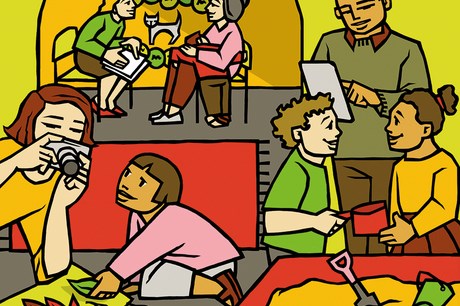
LEARNING ABOUT CHILDREN AND THEIR DEVELOPMENT BY LEARNING ABOUT YOURSELF
So, effective early childhood practice is based on practitioners’ knowledge of child development theory and their understanding of individual children’s development, interests and socio-cultural contexts. But individual practitioners may think differently about aspects of development, practice and provision; one may think physical development is a priority, while another may focus on literacy, for example.
These different priorities arise not only from our professional training and experience but are also highly influenced by our personal life experience and our values (something that you believe to be important in life).
For example, a practitioner who was brought up in a family where music was valued may enjoy all kinds of musical activities with the children. This can surely only be positive, yet if this practitioner’s music activities are loud and boisterous and her colleague was taught that it is important for children to sit quietly to learn, you can see that a conflict of values may well arise.
Your personal experience and values will also impact on how you view different kinds of families, children with different ethnic and socio-cultural backgrounds to you and your approach to parents and carers. So, it is very important that as a person, you are clear what your values are and where these come from in your life. And when working in a team, you need to all come to an agreement about practice values so everyone can be clear not just about what you do but why you do it.
FINAL WORD
As I said in the first article in this series, your knowledge and understanding of children’s play, development and learning is at the heart of what you do as an early years professional. Without a deep and broad understanding of each of these, you cannot provide the best that the children in your care deserve.
To develop a good level of knowledge and understanding, it is necessary that you observe children closely and that you continue to learn not only about child development theory but also about yourself.
FURTHER READING
Bruce, T (Ed) (2010) Early Childhood: A Guide for Students. London: Sage
Bruce, T, Meggitt, C and Manning-Morton J (6th edition) (2016) Childcare and Education. London: Hodder & Stoughton
Carr, M (2001) Assessment in Early Childhood Settings. Learning Stories. London: Sage
Early Education (2012) Development Matters in the Early Years Foundation Stage. Available at: www.early-education.org.uk
Fawcett, M (1996) Learning Through Child Observation. London: Jessica Kingsley Publishers
Manning-Morton, J (2006) ‘The Personal is Professional: professionalism and the birth to threes practitioner.’ Contemporary Issues in Early Childhood, Volume 7, Number 1, 2006, pp42-52
Manning-Morton, J (Ed) (2014) Exploring Well-being in the Early Years. Maidenhead: OUP
Manning-Morton, J and Thorp, M (2015) Two Year Olds in Early Years Settings; Journeys of Discovery. Maidenhead: OUP
Miller, L and Pound, L (2011) Theories and Approaches to Learning in the Early Years. London: Sage
Mukherji, P and Dryden, L (2014) (Eds) Foundations of Early Childhood: Principles and Practice. London: Sage
Parts 1-11 of Julia Manning-Morton's child development series are all available in full toNursery World subscribers at www.nurseryworld.co.uk and in Nursery World magazine in the first issue of each month from January 2016.


